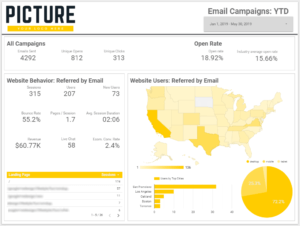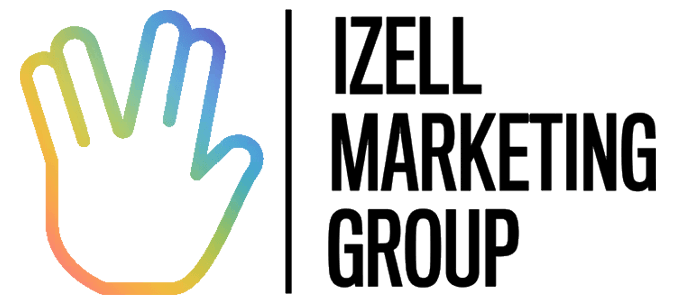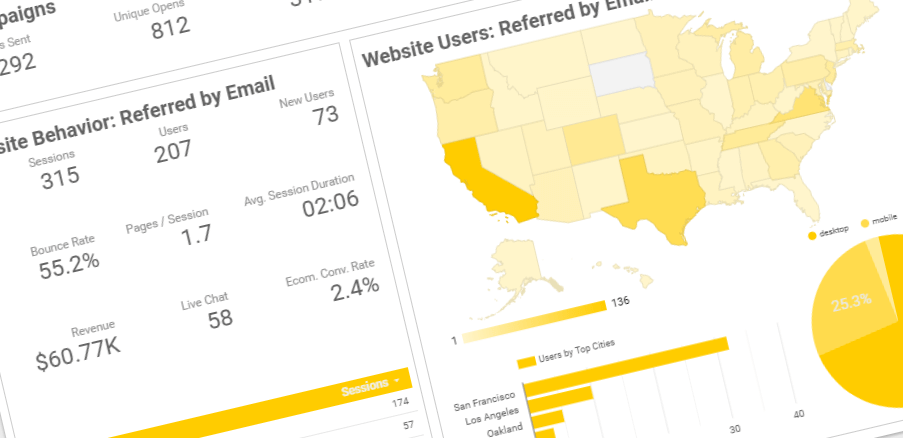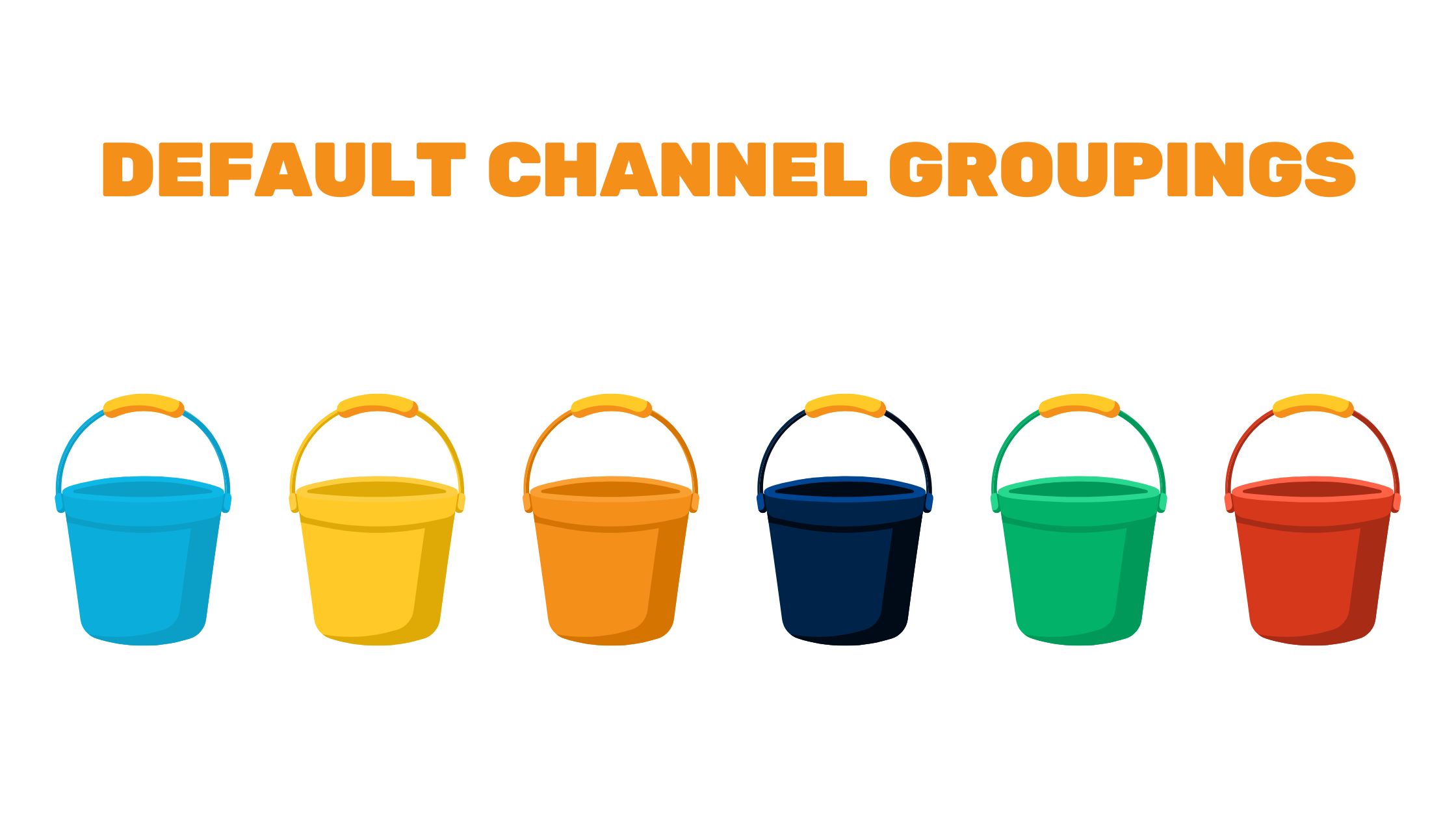Just about everyone has heard that you need to be “data-driven” to be successful, but what does that actually mean and how do you get started using data to support your business decisions?
The first thing you need to do is to identify the sources of data that already exist in your organization. This could be accounting and finance software, an ecommerce platform, online advertising platforms, social media accounts, website traffic data, inventory management systems, customer relationship management software, and more.
But don’t waste your time switching back and forth between all these individual platforms while trying to understand how changes and trends in one affect your bottom line. The next step, and the most important one, is to make the data easily accessible and understandable to

key decision makers in your organization. A great way to do this is with a dashboard. A custom dashboard will allow you to connect any source of data relevant to your business, and see the data displayed in ways that shows how one aspect of your business can influence another.
Getting the data out of spreadsheets and log files and into a dashboard that updates in real time (or close to it) with visuals will turn anyone into a data-driven decision maker. Depending on your specific needs, your dashboard might include some interactivity to allow for segmentation or other filters (by customer group, company department, geography, or any other relevant division), for even deeper insights. You can also change the date ranges to see how business performance changes over time.
Having a dashboard doesn’t eliminate the need for business expertise and experience, but it is a valuable tool to make sure you have all the relevant information at the ready so you’re not relying purely on gut feelings, industry trends that your competition has easy access to, and anecdotal (and possibly biased) reports from your team.
Ready to get started? A great free dashboarding tool is Google Data Studio. You can dive right in or take a look at some of the help resources linked below. If you’d rather focus on what you do best (running your business), I’d love to hear from you about your dashboard and business analytics needs.
Welcome to Data Studio
Analytics Academy – Introduction to Data Studio




